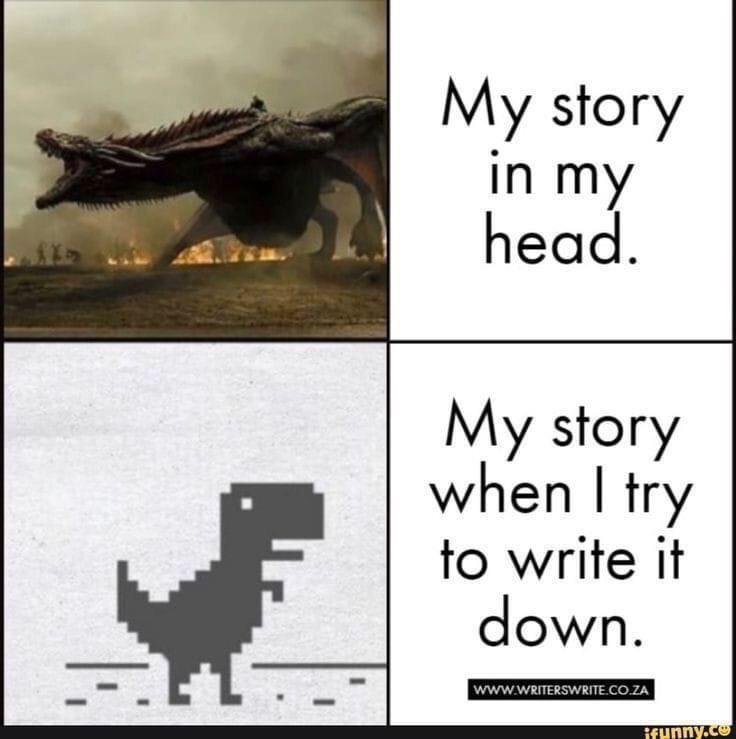|
Solidarity, word-count chasers: November is YOUR month. If you’re taking part in National Novel Writing Month this year, I wish you the very best of luck. I know writers whose novels have happened as a direct result of the accountability NaNoWriMo affords. (I also know writers for whom the format has the opposite effect, by the way, so, as ever with writing processes, there are no absolutes. If you’re not taking part, or if NaNo hasn’t worked for you in the past, please know that it’s not my thing either and keep looking for the process that suits your creative flow.)
Tomorrow, you tell yourself. The words aren’t flowing today. I’ll try again tomorrow when I’m feeling more inspired.
Here’s the problem, though. Waiting to feel inspired is a great way to never write a word. The myth of the frenzied artist wildly hammering his typewriter keys in his freezing garrett, lost in creative passion, is pervasive — and damaging. Sure, sometimes the writing flows so effortlessly that you’ll look up and hours have passed; the house has got dark and you’ve forgotten to eat since breakfast. If that’s ever happened to you, you’ll know that it’s absolutely transcendent and glorious. It’s also incredibly rare. For the most part, writing is not like that: it’s about showing up to the keyboard and making your novel appear bit by bit, and some days it’s fun and some days it’s like pulling teeth. But I’ve worked with enough writers now to know that the days when the words just won’t come, or they won’t come right, can very easily get mapped onto that image of the creative genius in a way that whispers, “Yeah, if this was really for you, you wouldn’t find it so tough.” Not true, of course. Absolutely not true. Everyone finds it tough — as Thomas Mann himself once said, “A writer is a person for whom writing is more difficult than it is for other people” — but that’s the problem with writing as a solitary endeavour. There’s nobody but you to push back against the voice of self-doubt. And that’s one of the things I love about NaNoWriMo. The focus is on getting words on a page. They don’t necessarily have to be good words; they just have to meet a certain word count. In essence, that’s all a first draft actually is: putting enough words on a page to meet a certain word count (yes, of course I’m over-simplifying; bear with me). The second draft is where you polish those words into something closer to your original vision. Some writing takes more redrafting than others, but everything you write will always need at least one more pass before it’s ready. NaNoWriMo leans into that idea, embraces it, and says, “The quality of your first draft could not be less important. The important thing is to get it down on paper; you can’t edit a blank page. Writers, let’s do this.” Second-guessing your writing is just part of the creative contract. We pour our souls into the words we write and we’ll never not be scared that someone will look at those little bits of soul infused through our work and go, “Ugh.” But ignore those people. Those people are not your audience. Your audience are the people who go, “Wow!” And they can’t ever get the chance to go “Wow!” if you don’t write the thing. So forget about perfection, forget about flowing narrative and sparkling characters and awe-inspiring worldbuilding, and just get those words out of your head and onto a page, whichever way you can. So, go on, then. How many words are you going to write today?
0 Comments
Leave a Reply. |
Tips, tricks & advice to help your writing shineCategories
All
Blog updates on the first of every month.
|

 RSS Feed
RSS Feed